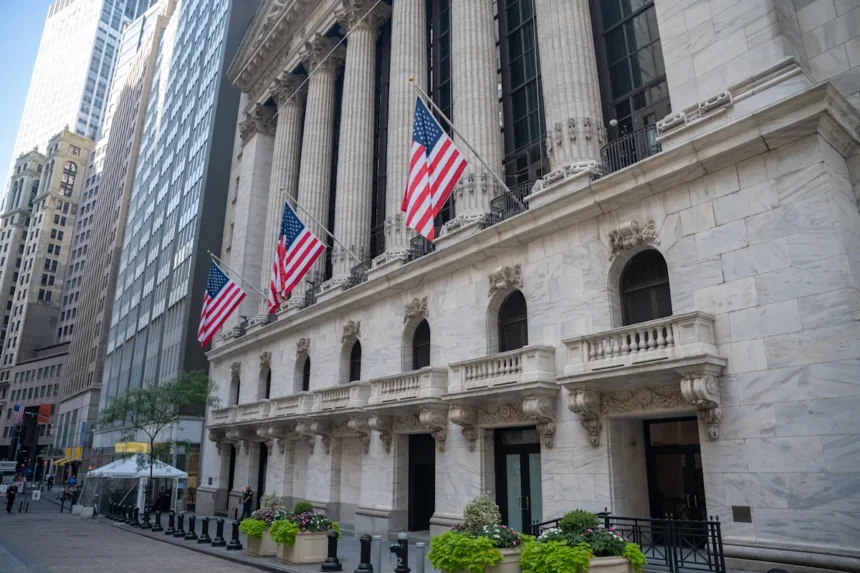U.S. stock markets declined sharply on Friday as escalating tensions between President Trump and China led to renewed fears over tariffs. The Dow Jones Industrial Average fell by 1.5%, losing more than 650 points, while the S&P 500 followed suit with a decline of over 2.2%. The tech-driven Nasdaq Composite was hit the hardest, dropping more than 2.9%.
Trump’s criticisms of China, articulated in a lengthy social media post on Truth Social, came following China’s recent trade provocations, which included imposing new port fees on American vessels and initiating an antitrust investigation into Qualcomm. The Chinese government has also instituted tighter export controls on rare earth minerals and halted purchases of U.S. soybeans. “Some very strange things are happening in China!” Trump wrote, expressing dismay at the situation and threatening to cancel an upcoming meeting with Chinese leader Xi Jinping.
The former president indicated that he is considering a “massive increase” in tariffs on Chinese imports, suggesting that the economic pain could ultimately benefit the U.S. economy in the long run. This return to tariff-based conflicts dampened market sentiment during an already turbulent week marked by fluctuating investor reactions between hopes for AI-driven growth and concerns about a potential government shutdown.
As investors anticipated earnings season next week—highlighted by major financial institutions like JPMorgan and Citigroup—the market’s mood remained cautious. Analysts expect profits to be impacted by tariffs, further straining market performance.
Meanwhile, cryptocurrency markets mirrored stock trends with Bitcoin experiencing a notable decline, dropping below $118,000 and losing up to 3% in value. Ether also saw a 6% reduction amidst the overall market pullback.
As trading continued, losses accelerated. At one point, the Dow hovered over a 600-point loss, while the Nasdaq dropped 2.2%, particularly affecting technology and semiconductor stocks.
In commodity markets, cocoa futures reflected a troubling trend, as prices slipped more than 1.8%, signaling the longest weekly loss streak since 1999. Market analysts pointed to decreased demand from chocolate producers and an anticipated oversupply due to increased production rates in West Africa.
Amid the turmoil, the University of Michigan’s latest consumer sentiment index revealed persisting pessimism among Americans regarding employment prospects and inflation, although readings indicated some relative stability compared to prior months.
As the day progressed, declines in stock markets entrenched, with significant implications for sectors reliant on trade and consumer confidence. Investors and analysts alike are keenly awaiting forthcoming economic data that could further clarify the overall landscape as the government shutdown enters its tenth day.







